Maxim Dmitriev: photos of Tsarist Russia
Categories: History
By Pictolic https://pictolic.com/article/maxim-dmitriev-photos-of-tsarist-russia.htmlWe all know and love the photos of Sergei Prokudin-Gorsky. Color frames of tsarist Russia are a unique asset. But there is another classic, equal in size. This is Maxim Dmitriev. Unlike Prokudin-Gorsky, he did not bring us postcard Russia. He took the first genre pictures in our country.
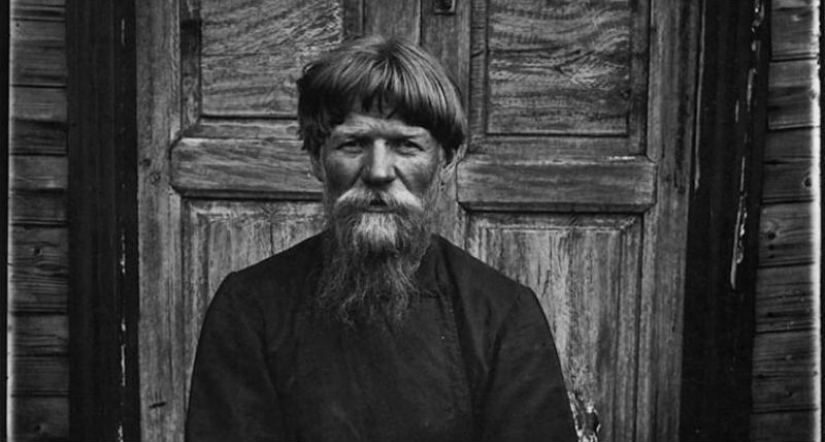
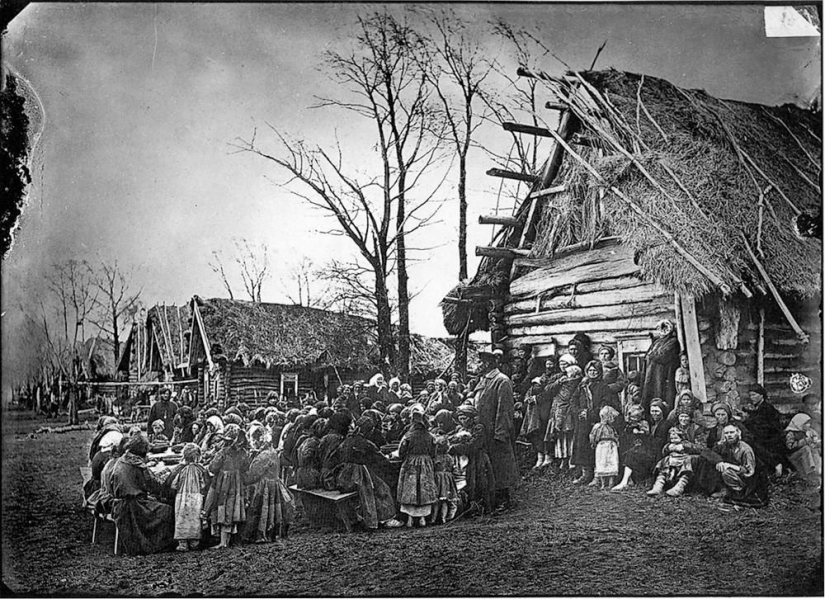
People's canteen in the village of Pralevka, Lukoyanovsky district. 1891-1892 The negative is 18 × 24 cm.
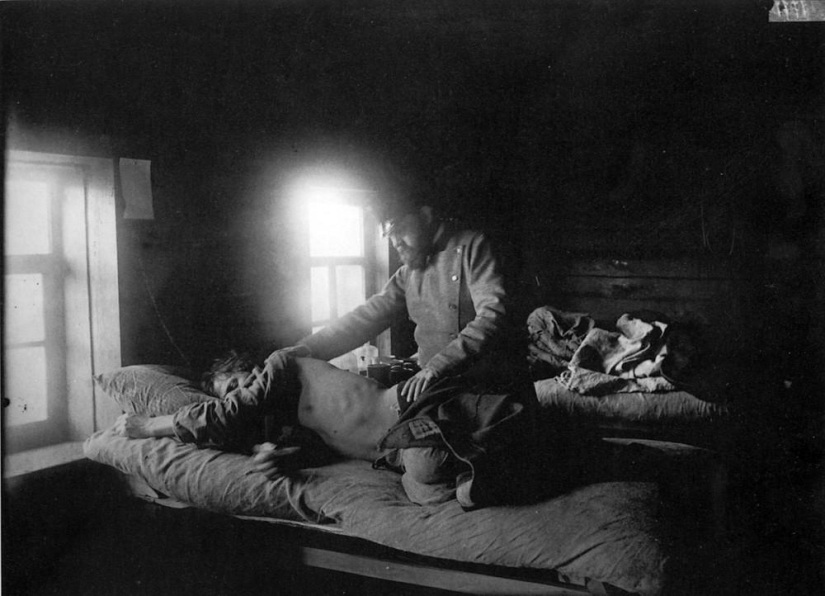
Dr. Reshetilov examines Kuzma Kashin, a patient with typhus, in the village of Nakrusov. 1891-1892 The negative is 18 × 24 cm.
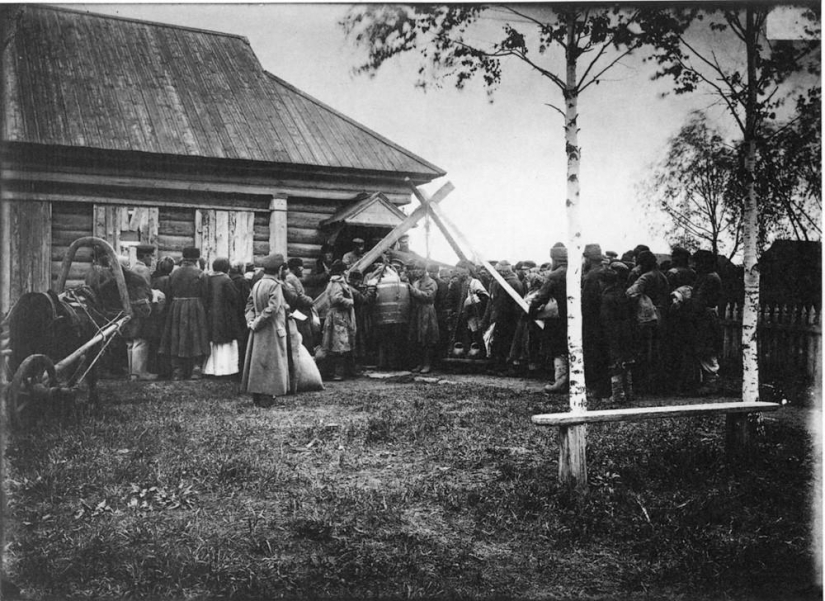
Distribution of bread on loan to peasants in the city of Knyaginin. 1891-1892 The negative is 18 × 24 cm.
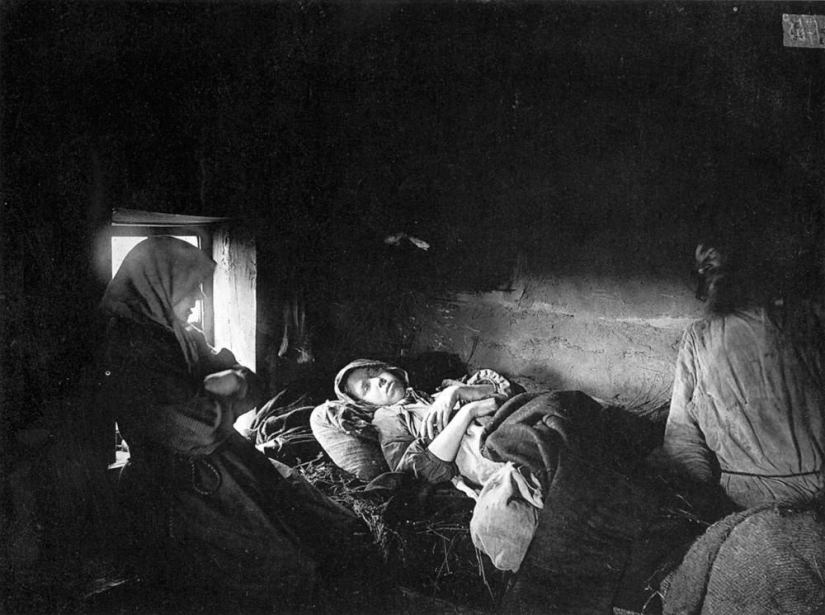
Patients with typhus in the city of Knyaginin. 1891-1892 The negative is 18 × 24 cm.
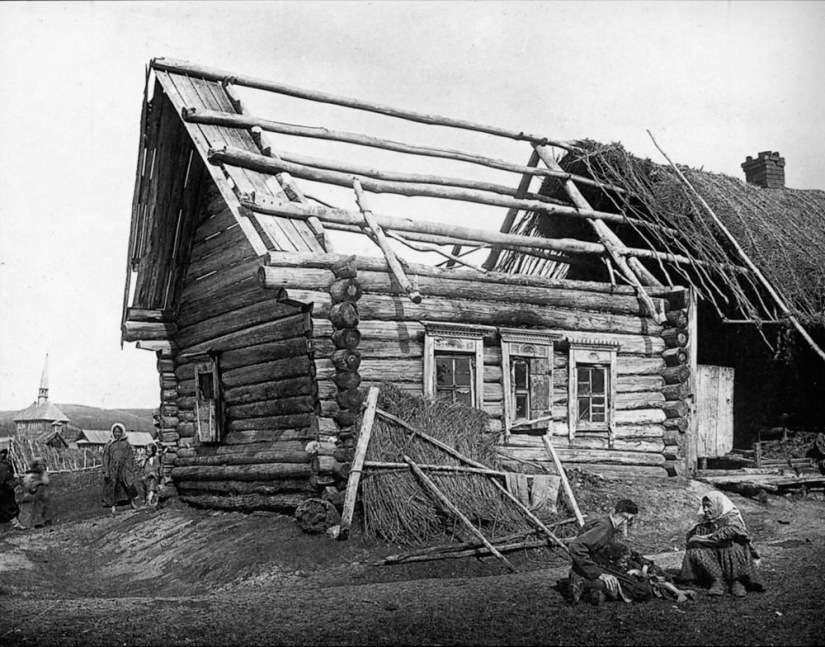
The hut of Tatar Salovatov in the village of Kadomke, Sergachsky district. 1891-1892 The negative is 18 × 24 cm.
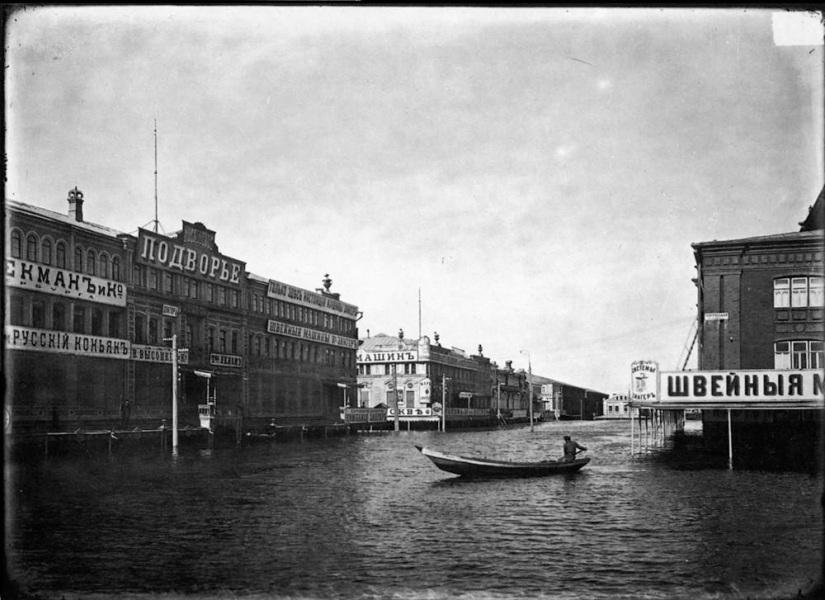
Theater square of the Nizhny Novgorod Fair during the flood. The negative is 18 × 24 cm.
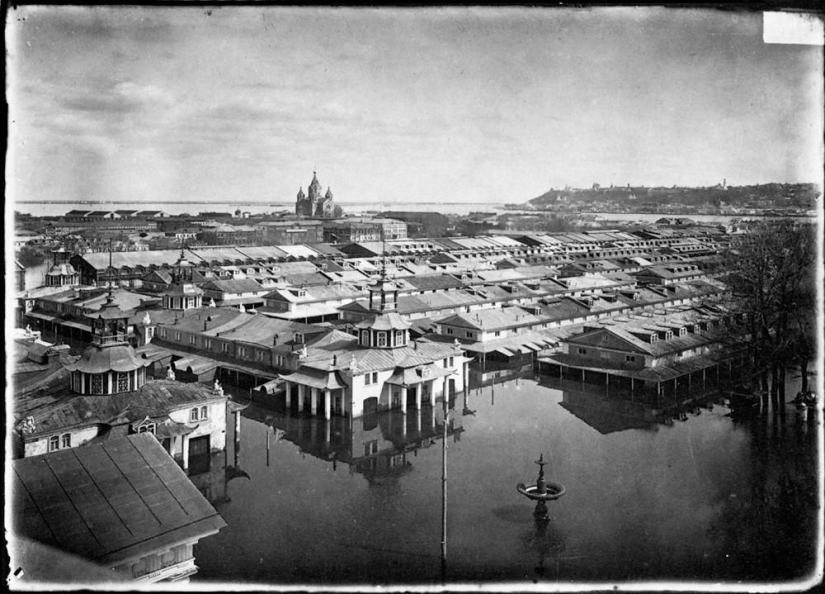
General view of the fair from the Spassky Old Fair Cathedral. The negative is 18 × 24 cm.
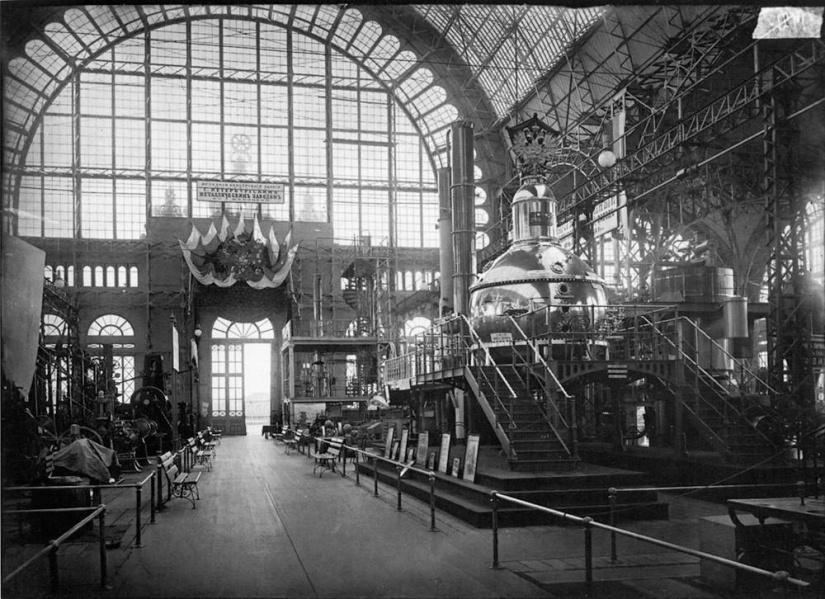
Machine department of the All-Russian Art and Industrial Exhibition. 1896. Negative 18 × 24 cm.
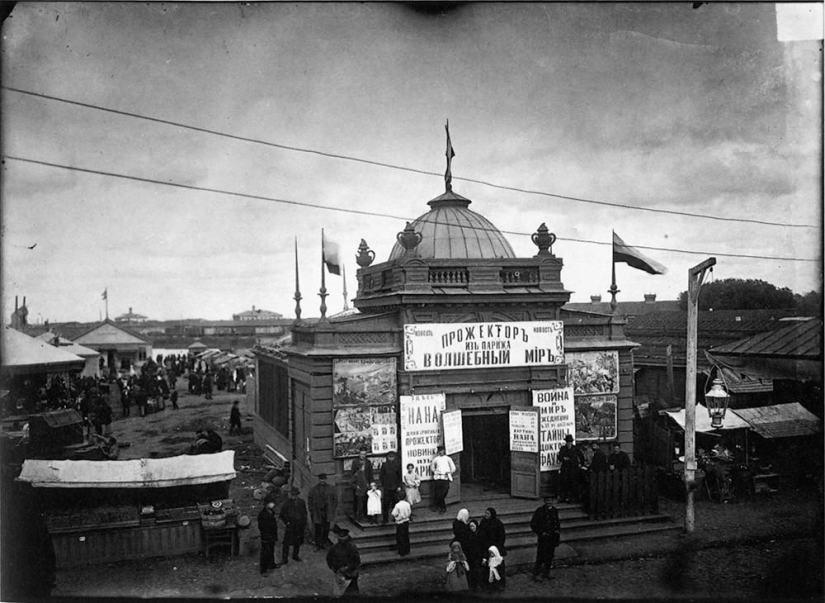
Samokatskaya Square. The Magic World Cinema. The negative is 18 × 24 cm.
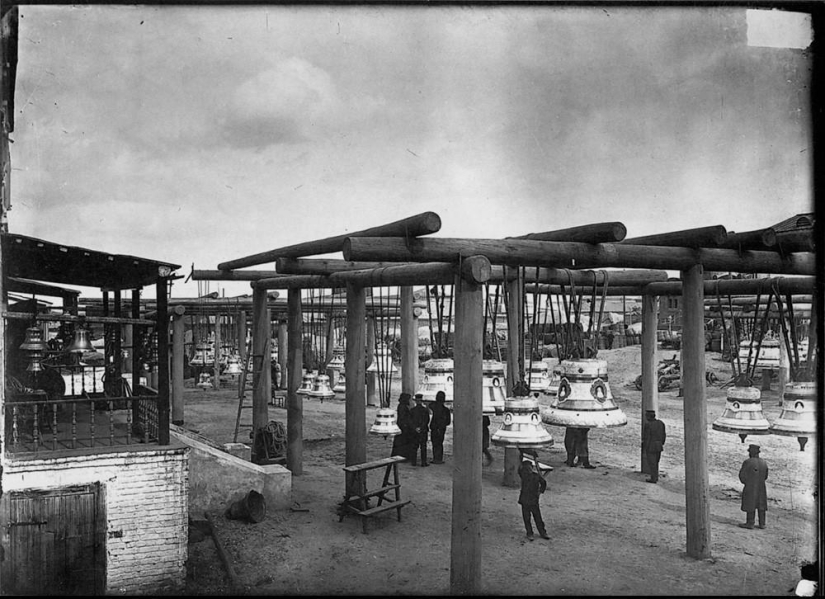
Bell rows at the fair. The negative is 18 × 24 cm.
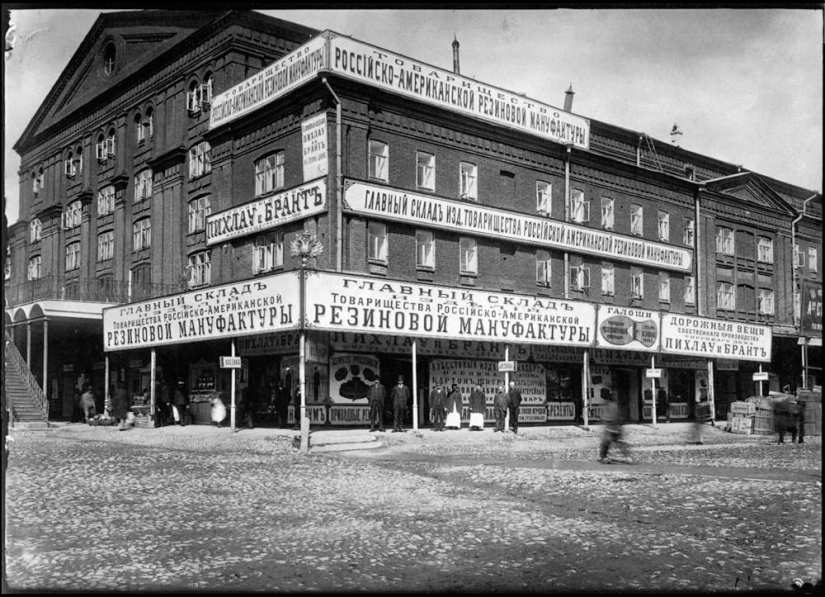
Figner Theater. The negative is 18 × 24 cm.
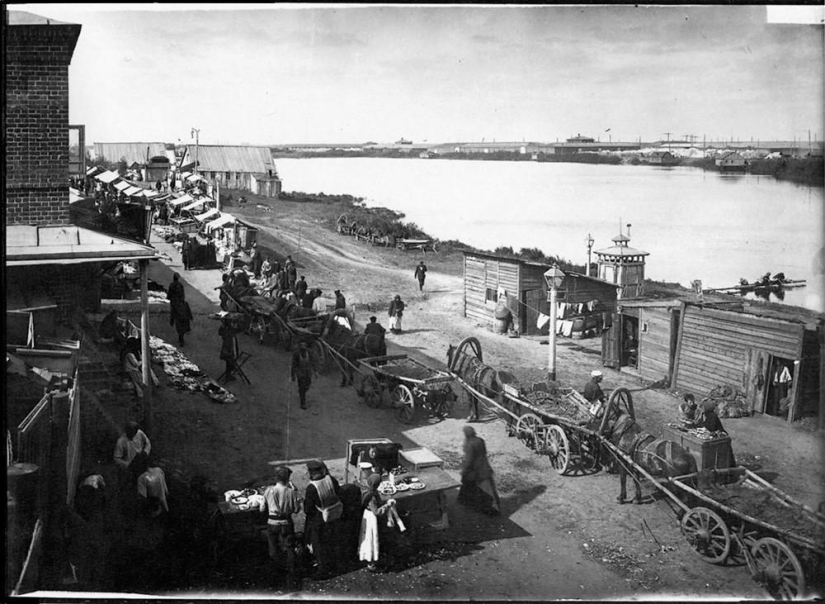
General view of the Lubochnye rows and Meshcherskoe Lake. The negative is 18 × 24 cm.
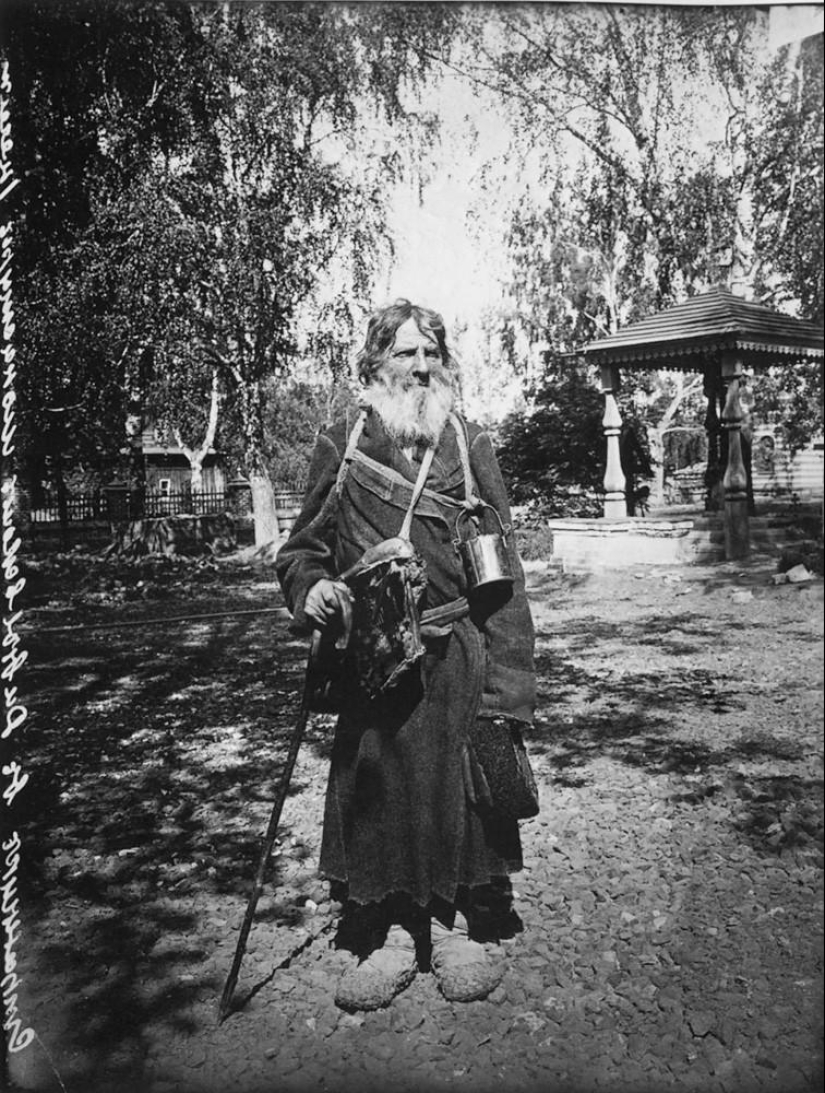
A pilgrim in the Seraphim-Diveyevsky Convent. 1904. Negative 18 × 24 cm.
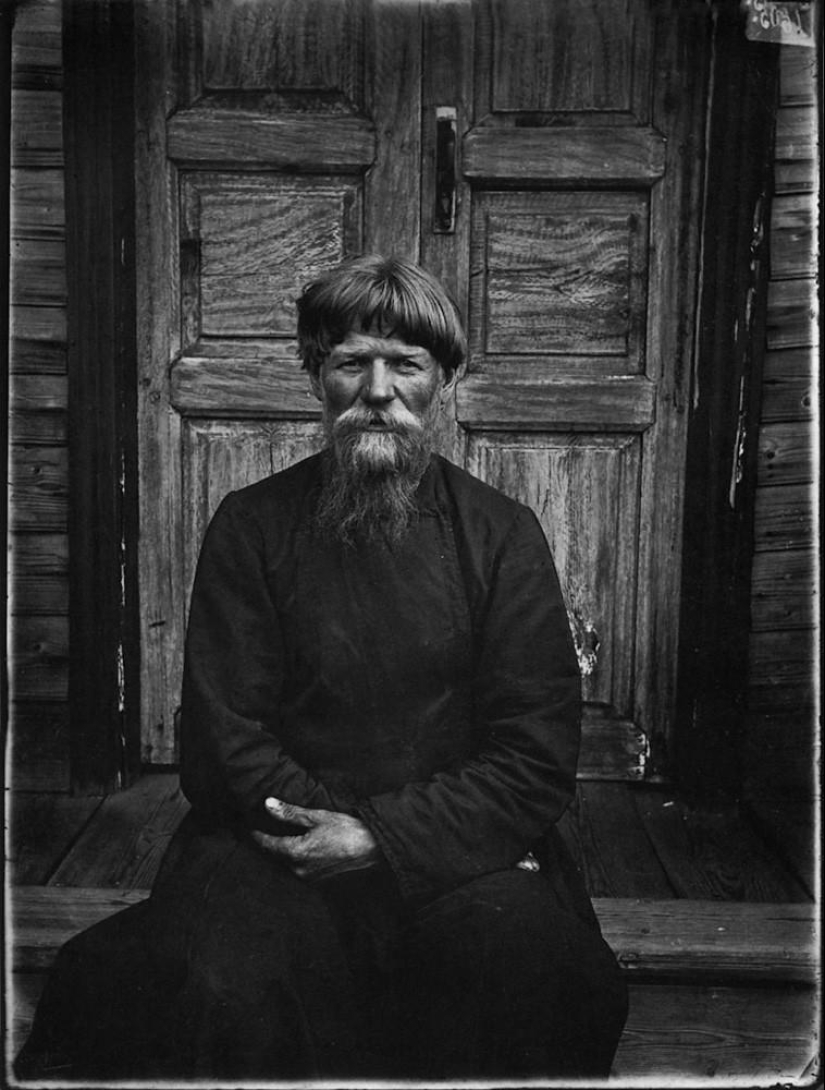
The rector of the Pomeranian oratory in the Semenovsky district. 1897. Negative 18 × 24 cm.
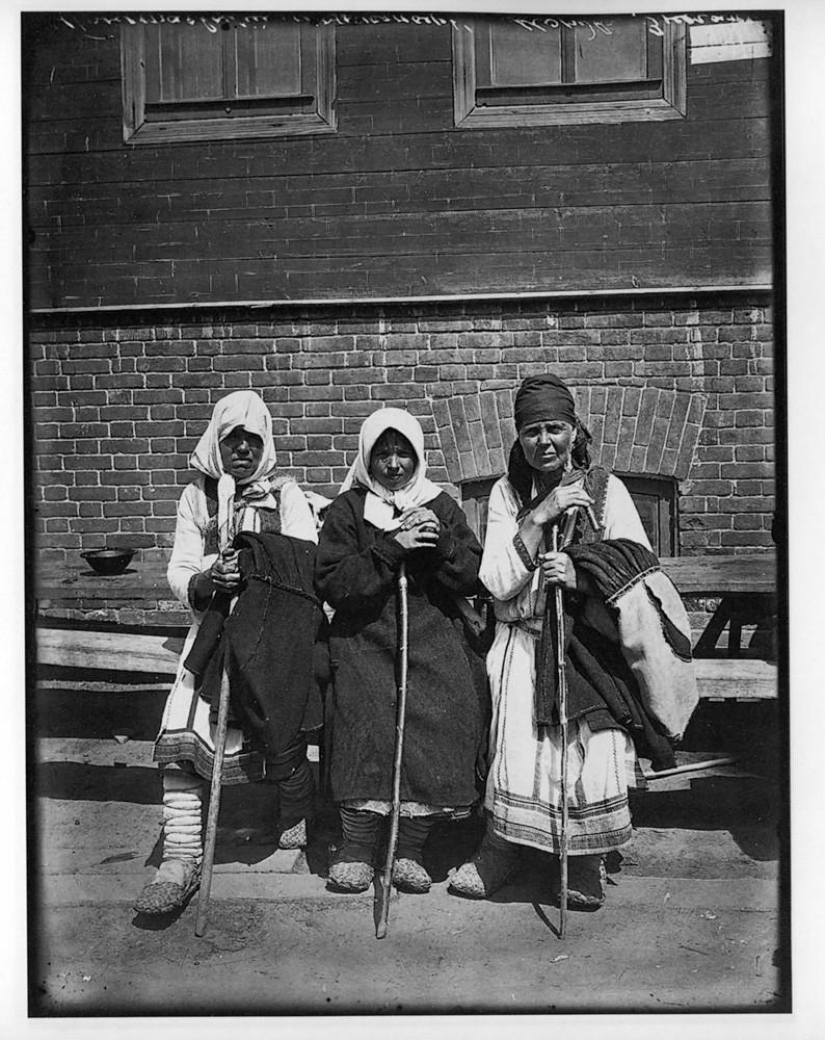
Types of praying mantises in the Seraphim-Ponetaevsky convent. 1904. Negative 18 × 24 cm.
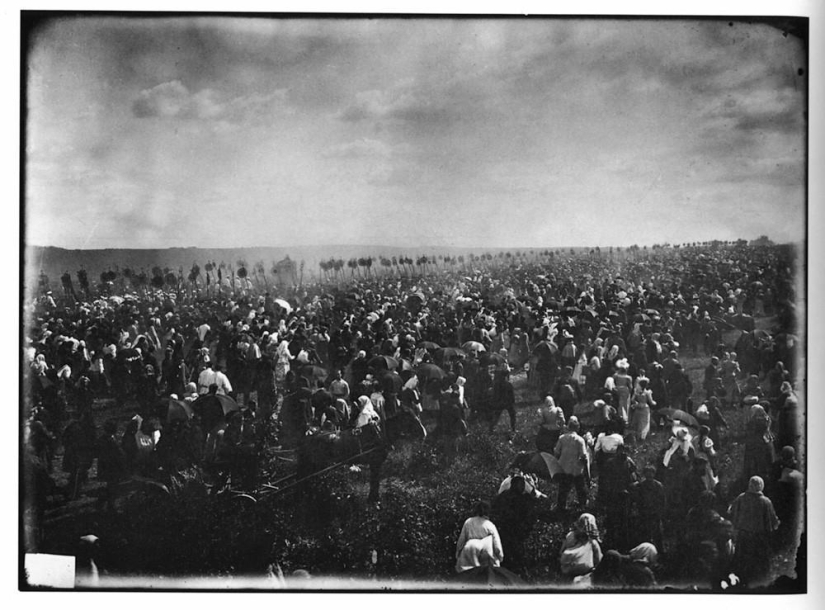
Seeing off the icon of the Mother of God of Orange from Nizhny Novgorod to the Oransky Bogoroditsky Monastery. The negative is 45 × 55 cm. A fragment.
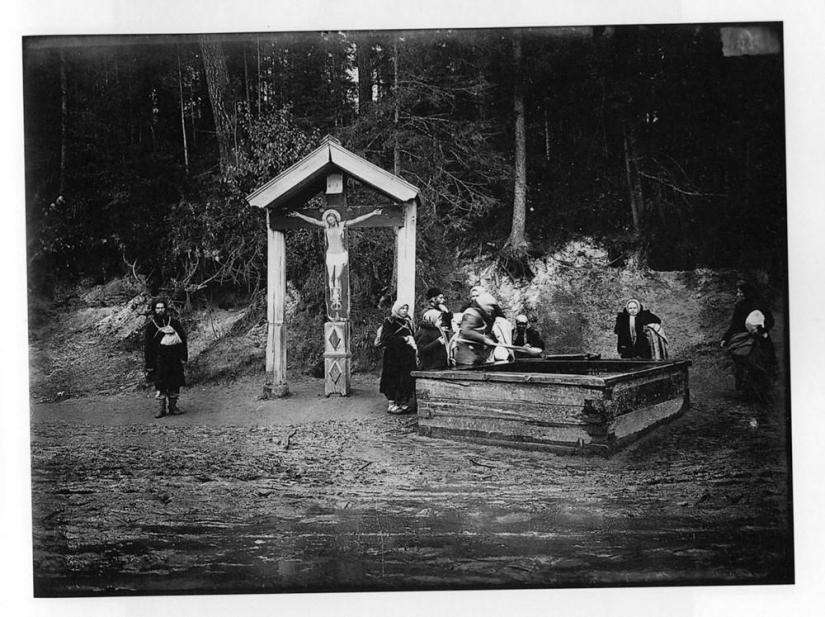
The holy spring in the Sarov monastery. The negative is 18 × 24 cm.
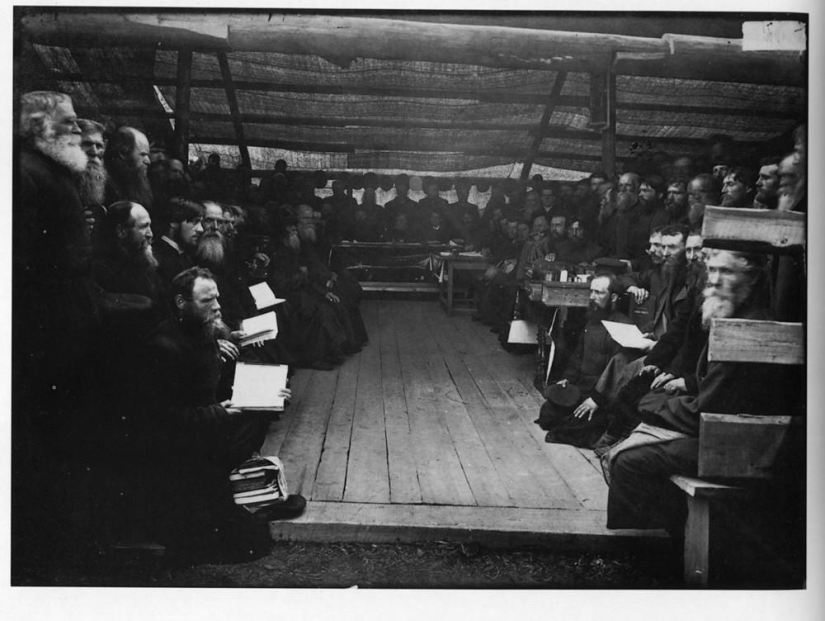
Congress of Old Believers in Nizhny Novgorod. The negative is 50 × 60 cm. A fragment.
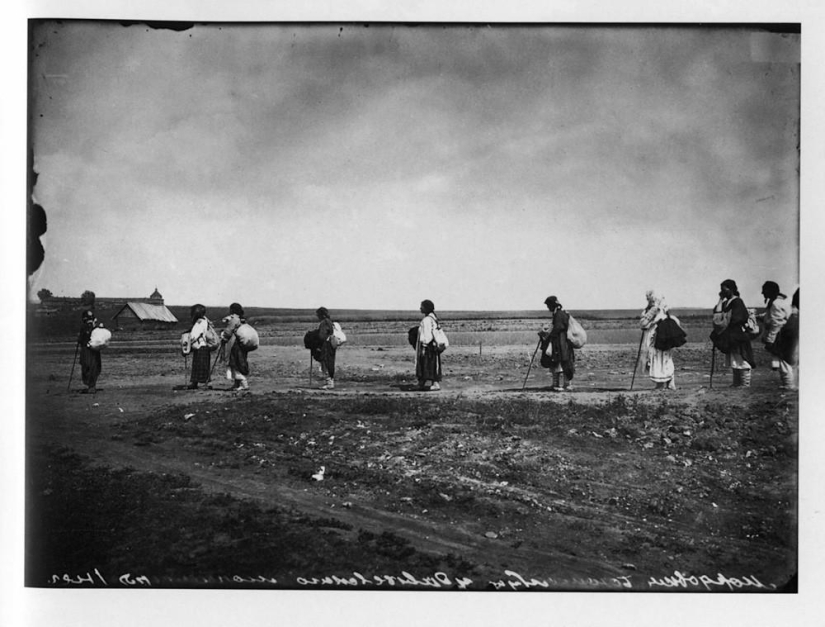
Bogomolki-mordovki, heading to the Seraphim-Diveyevsky convent. 1904. Negative 18 × 24 cm.
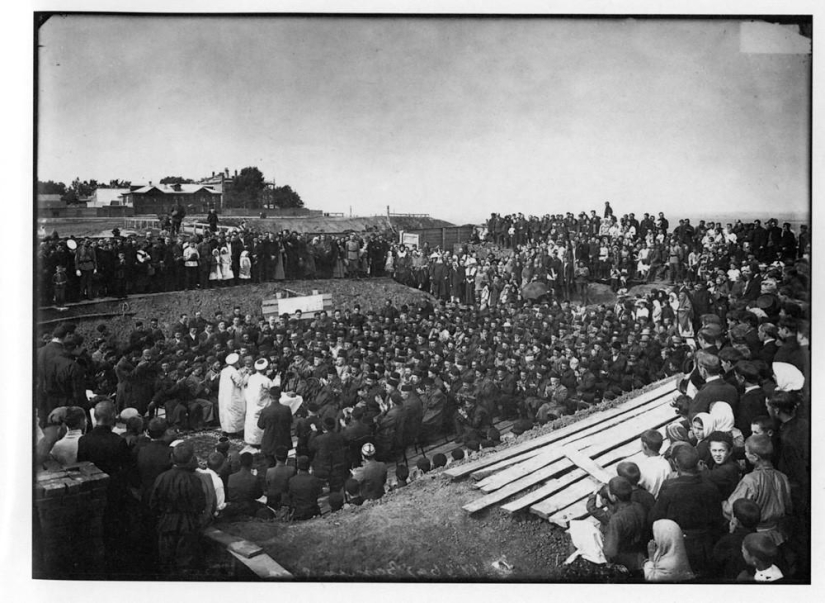
The laying of the city cathedral mosque in Nizhny Novgorod. 1902. Negative 18 × 24 cm.
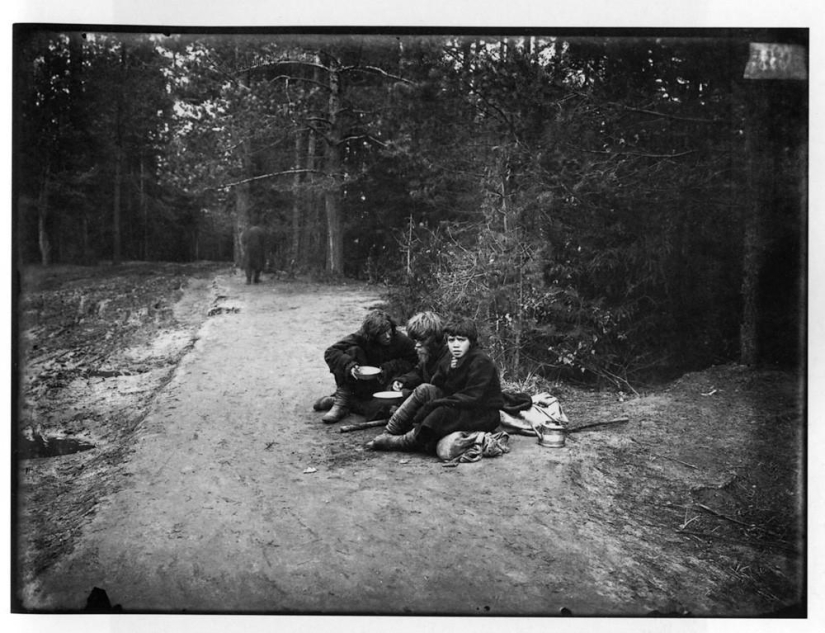
Travelers on the way to the Sarov monastery. The negative is 18 × 24 cm.
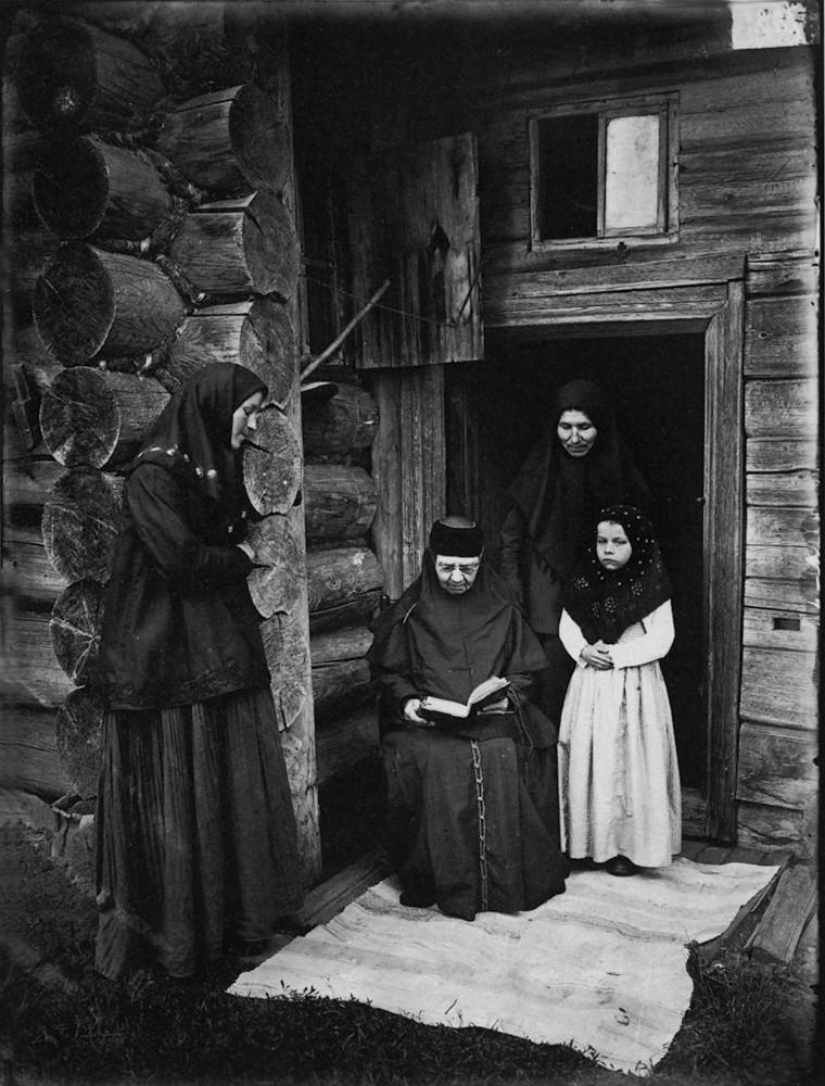
Olenevsky skete. Charters. 1897. Negative 18 × 24 cm.
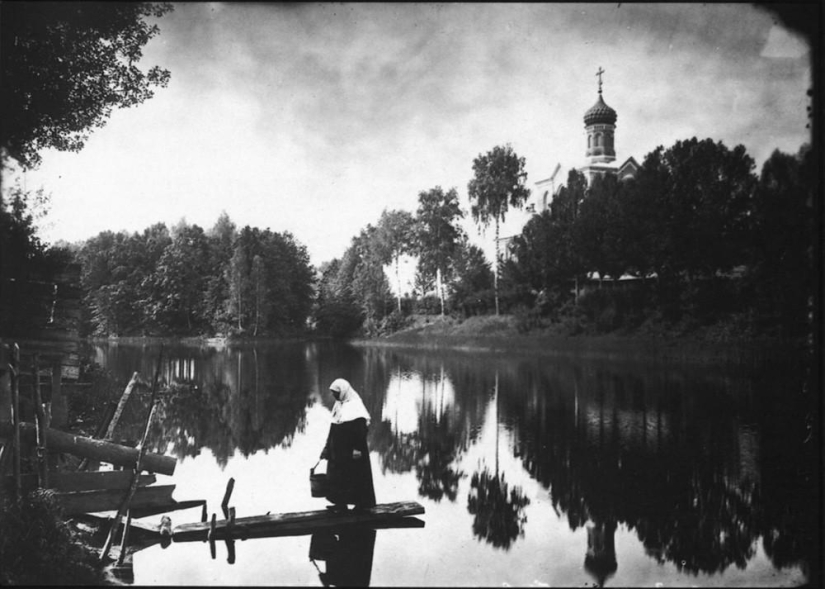
Seraphim-Ponetaevsky Convent. View of the monastery pond and the Hospital Church. The negative is 18 × 24 cm.
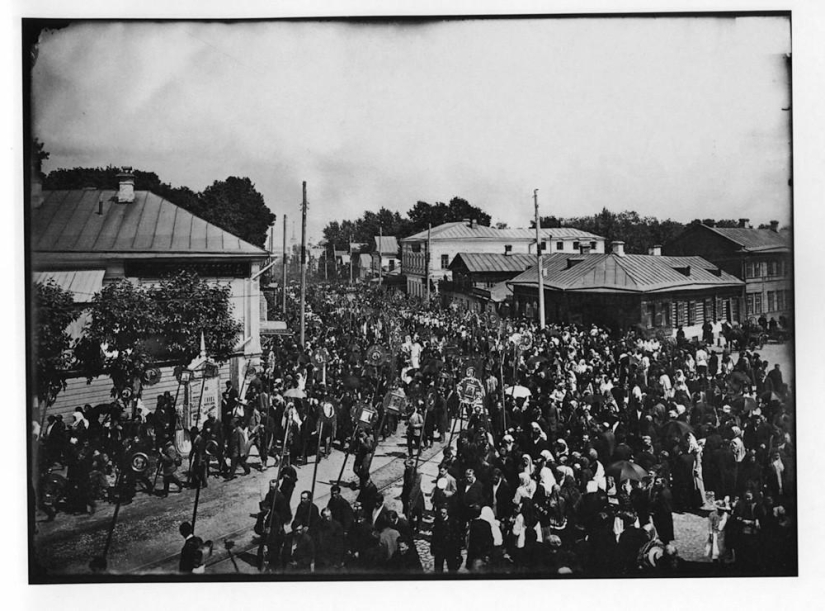
Seeing off the icon of the Mother of God of Orange from Nizhny Novgorod to the Oransky Bogoroditsky Monastery. The negative is 45 × 55 cm. A fragment.
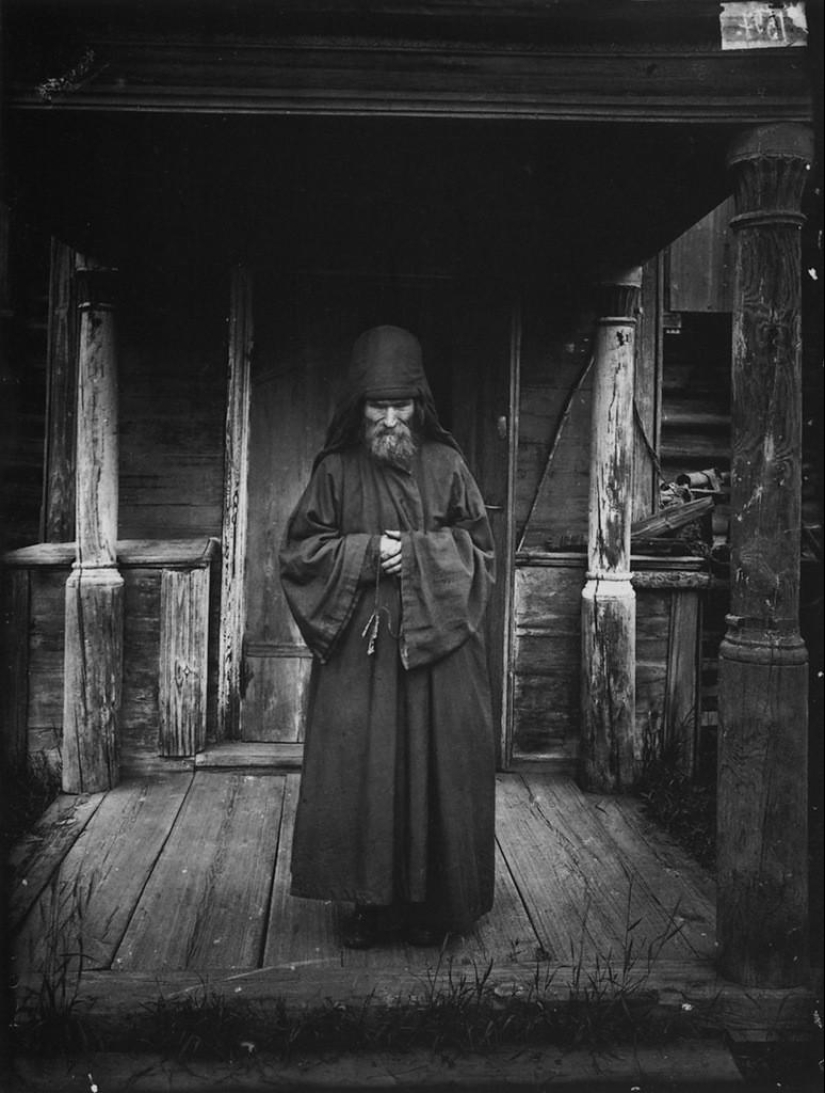
Blagoveshchensky Kerzhensky co-religionist male monastery. Monk-schemer. 1897. Negative 18 × 24 cm.
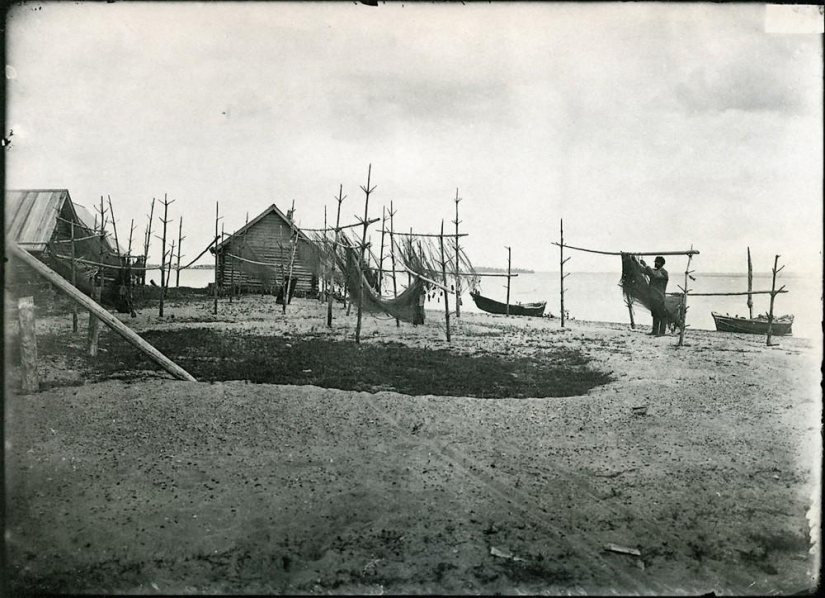
Drying of nets. The negative is 18 × 24 cm.
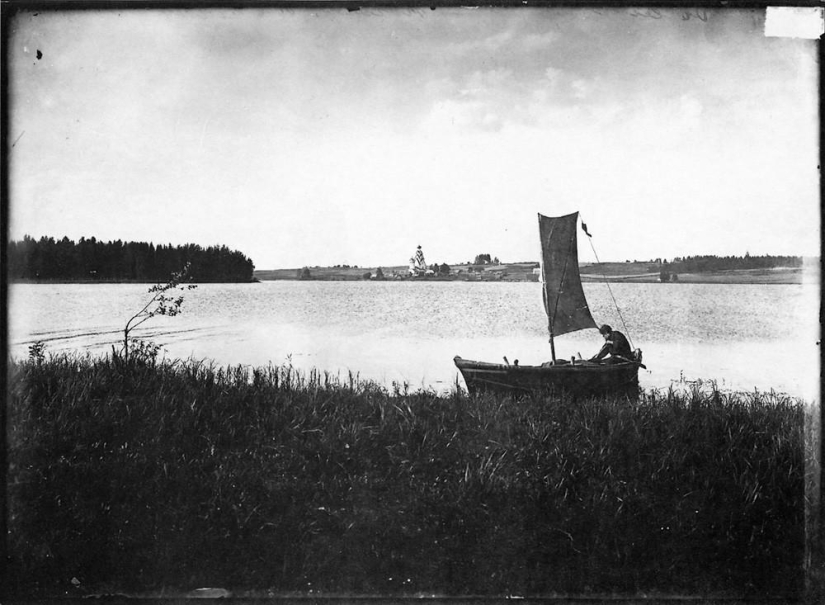
Lake Vselug. Shirokovsky churchyard. The negative is 18 × 24 cm.
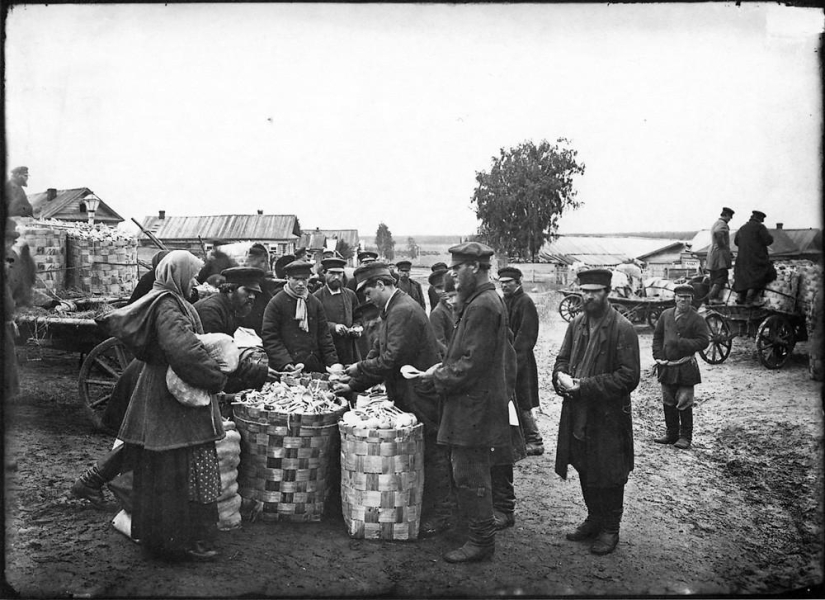
Lozhkarny bazaar in the city of Semenov. 1897. Negative 18 × 24 cm.
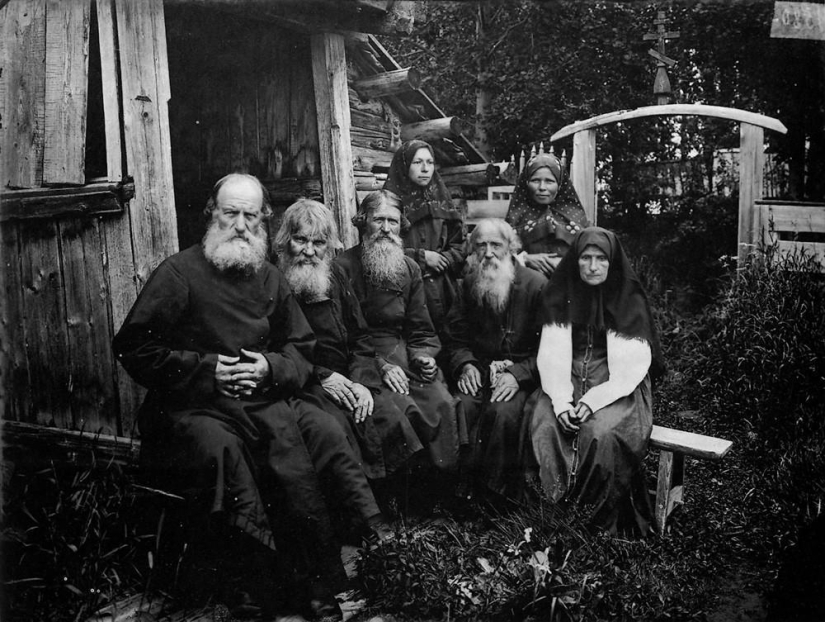
Types of Old Believers. Sharpansky skete in Semyonovsky district. 1897. Negative 18 × 24 cm.
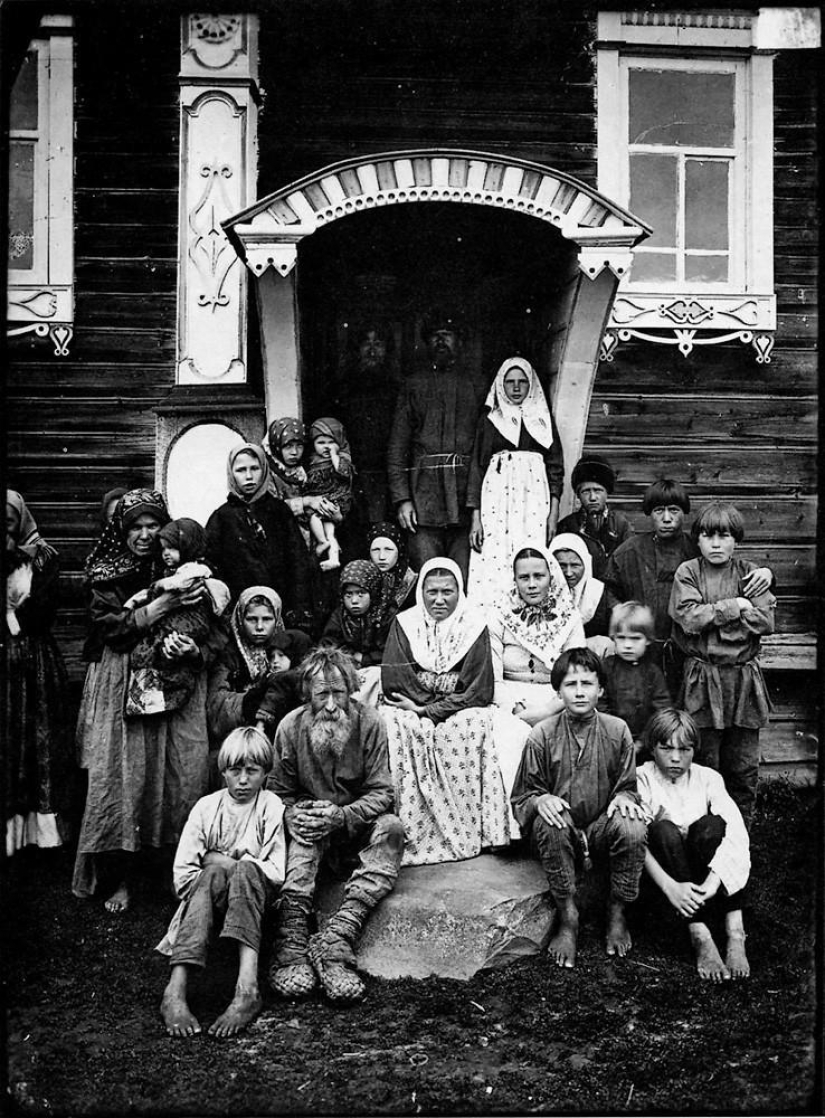
A group of Old Believers. The village of Kuznetsovo, Semenovsky district. The negative is 18 × 24 cm.
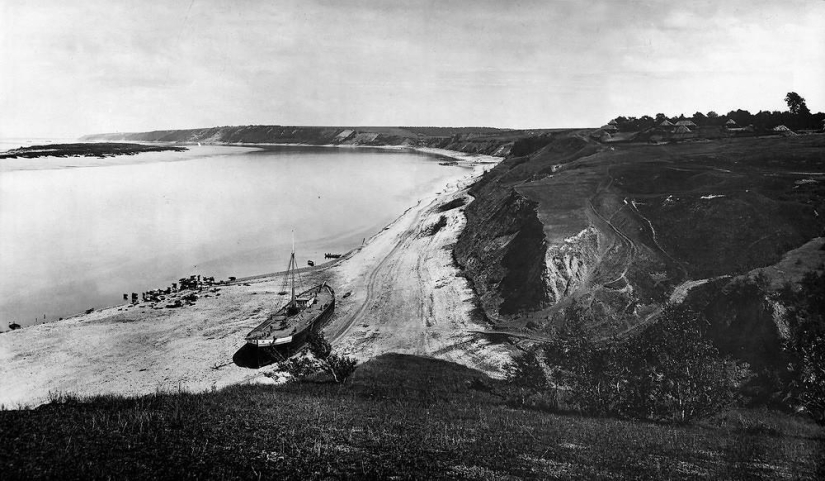
View of the Volga River from the Bashmenskaya mountain. The negative is 50 × 60 cm. A fragment.
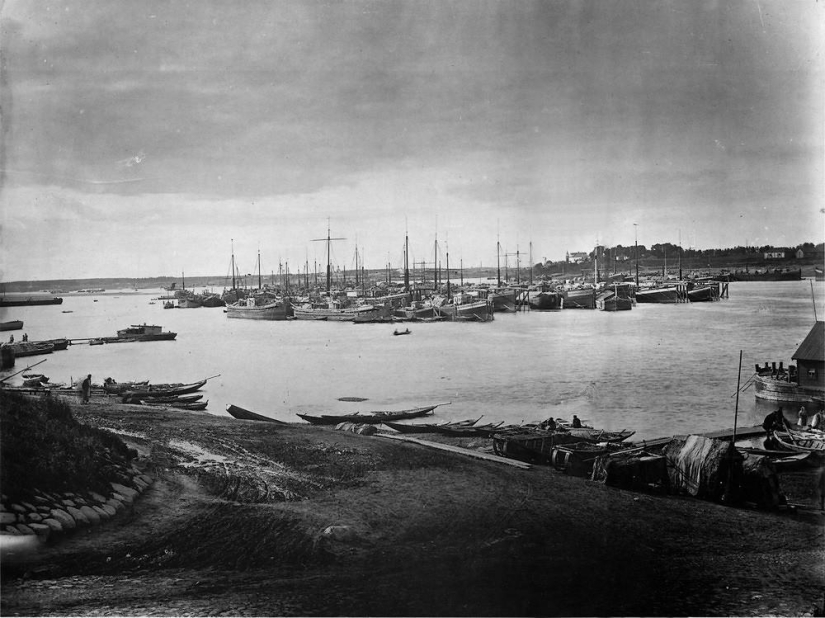
A caravan of ships on the Volga near Yaroslavl. 1894. Negative 30 × 40 cm.
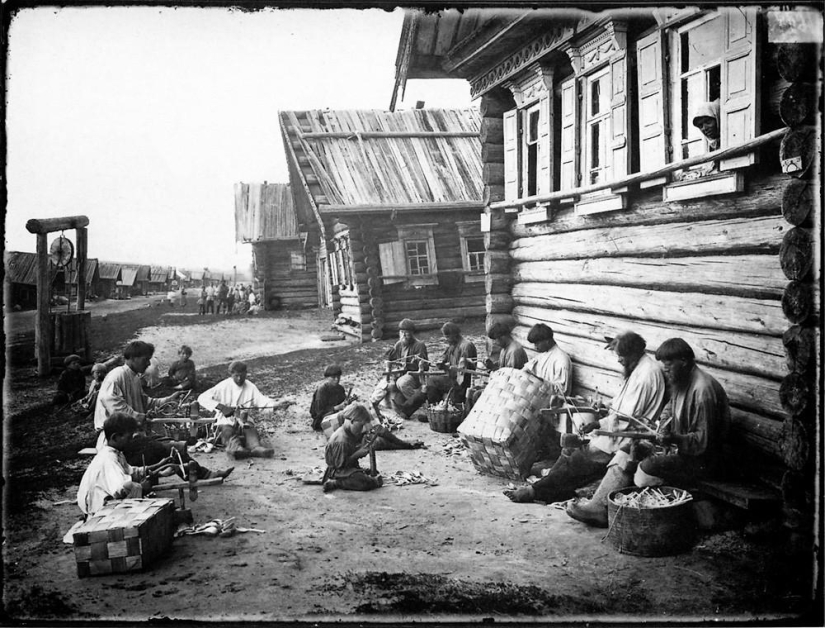
Lozhkarnoe production. Finishing of the spoon stalk. 1897. Negative 18 × 24 cm.
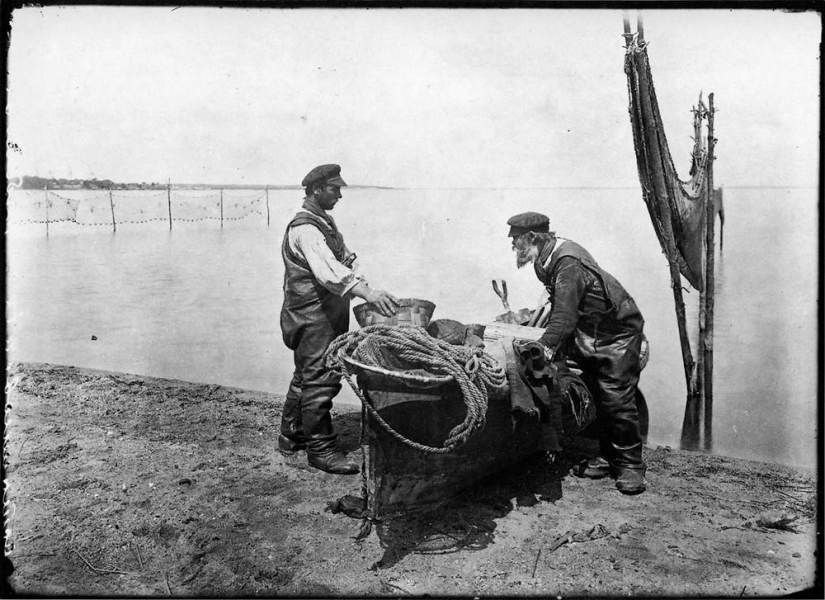
Ostashkovsky fishermen. The negative is 18 × 24 cm.
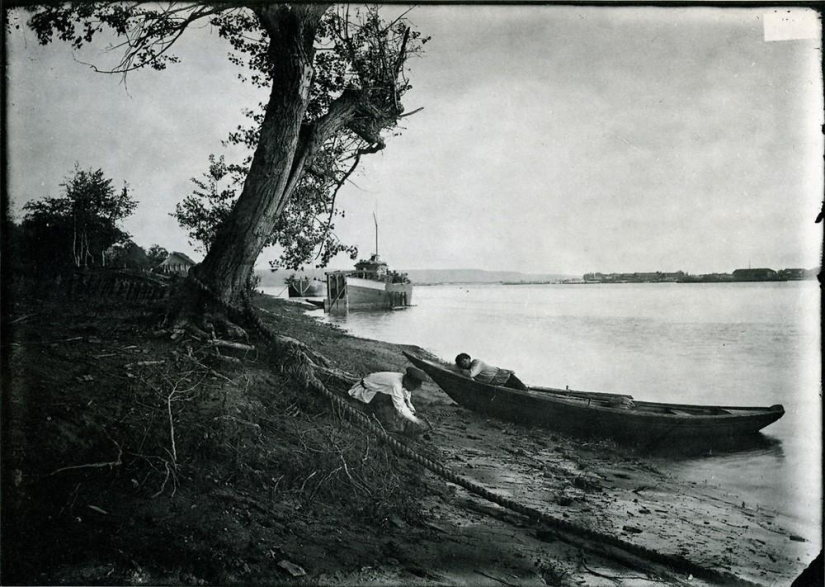
Sluda. View of the Oka River bank. The negative is 18 × 24 cm.
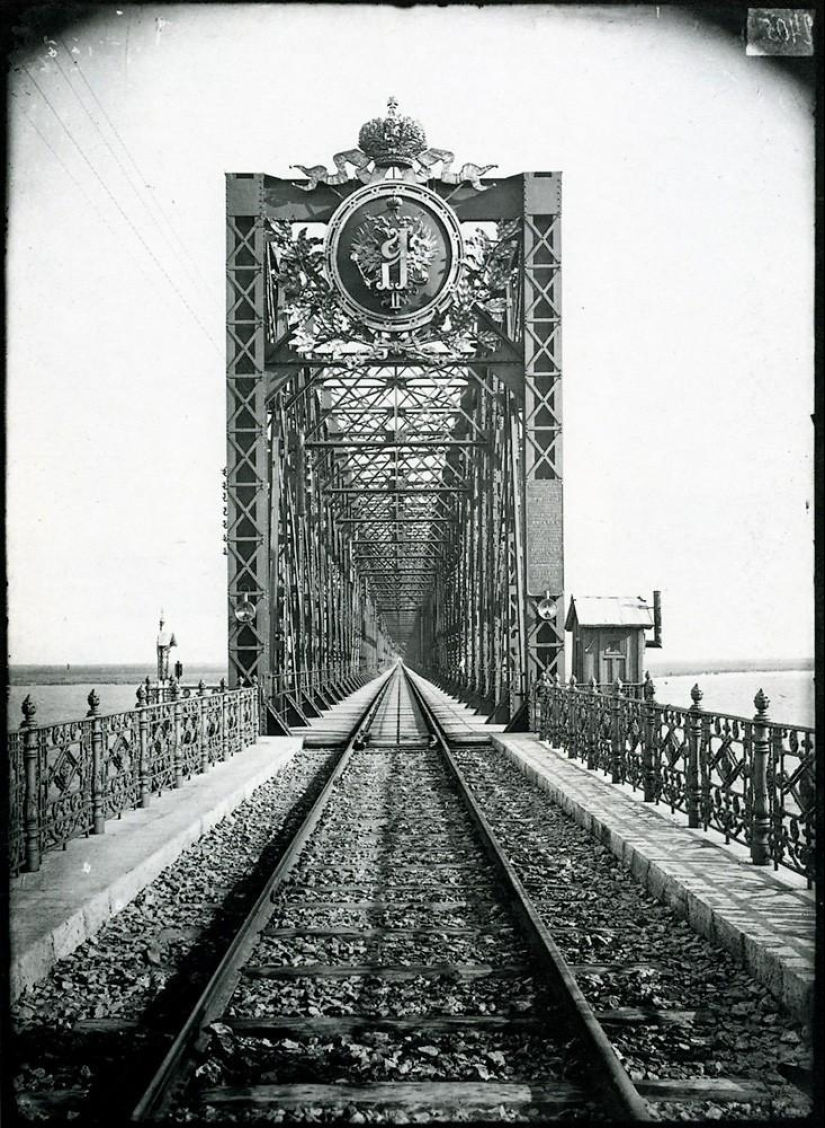
Alexander Bridge over the Volga River in Syzran. 1894. Negative 18 × 24 cm.
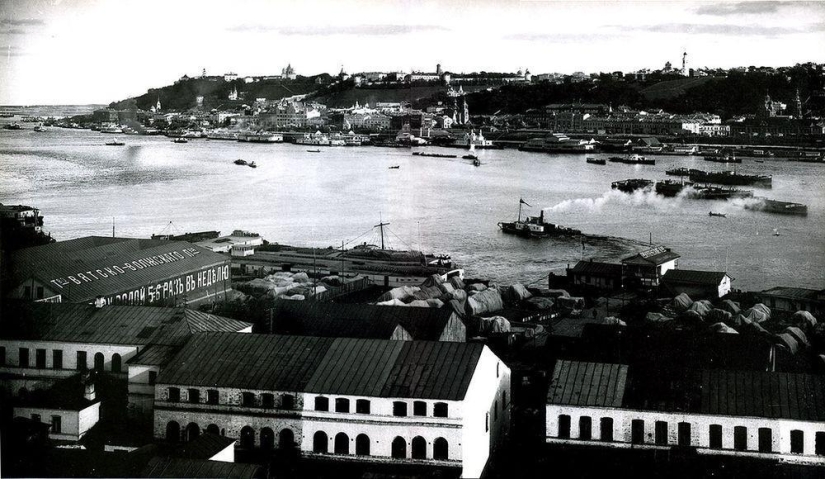
View of the mountainous part of Nizhny Novgorod from the left bank of the Oka River. The negative is 45 × 55 cm. A fragment.
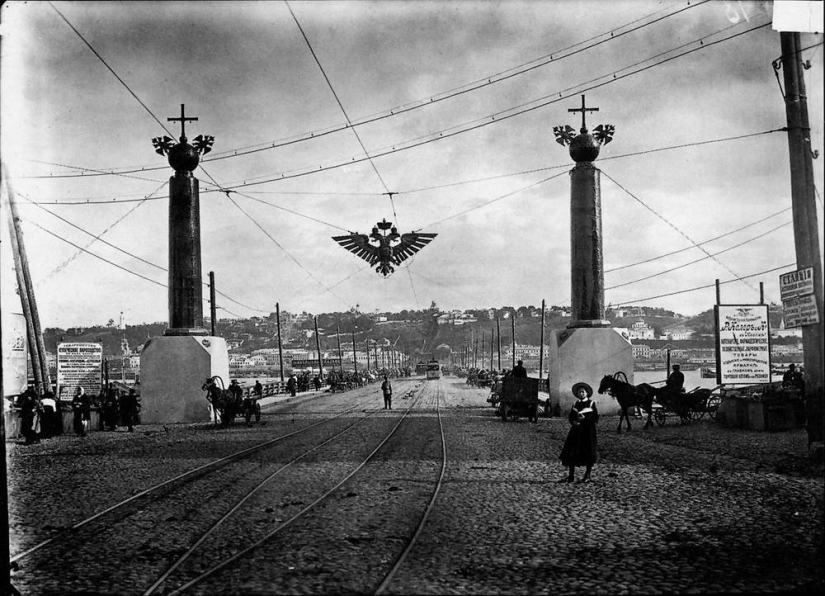
View of the plashkoutny bridge and the mountainous part of Nizhny Novgorod. The negative is 18 × 24 cm.
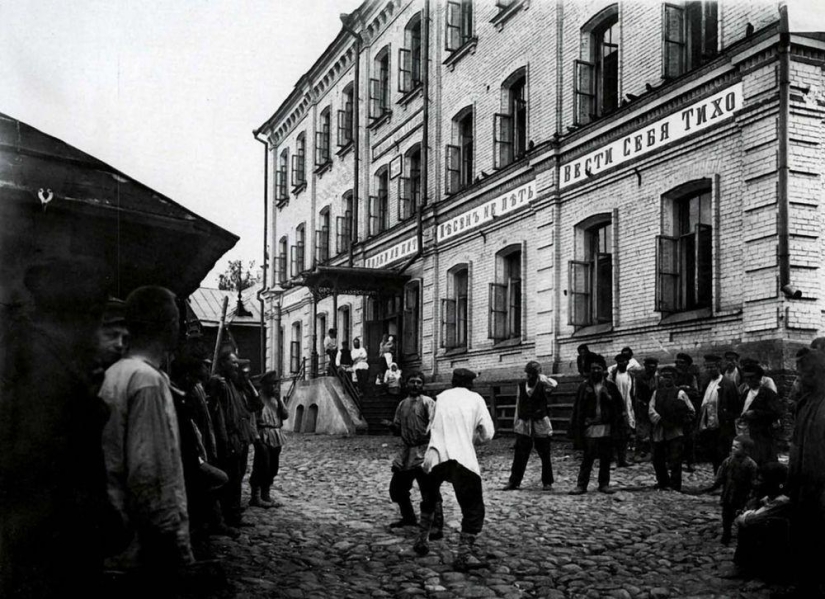
Fist fight in front of N. A. Bugrov's night shelter. The negative is 18 × 24 cm.
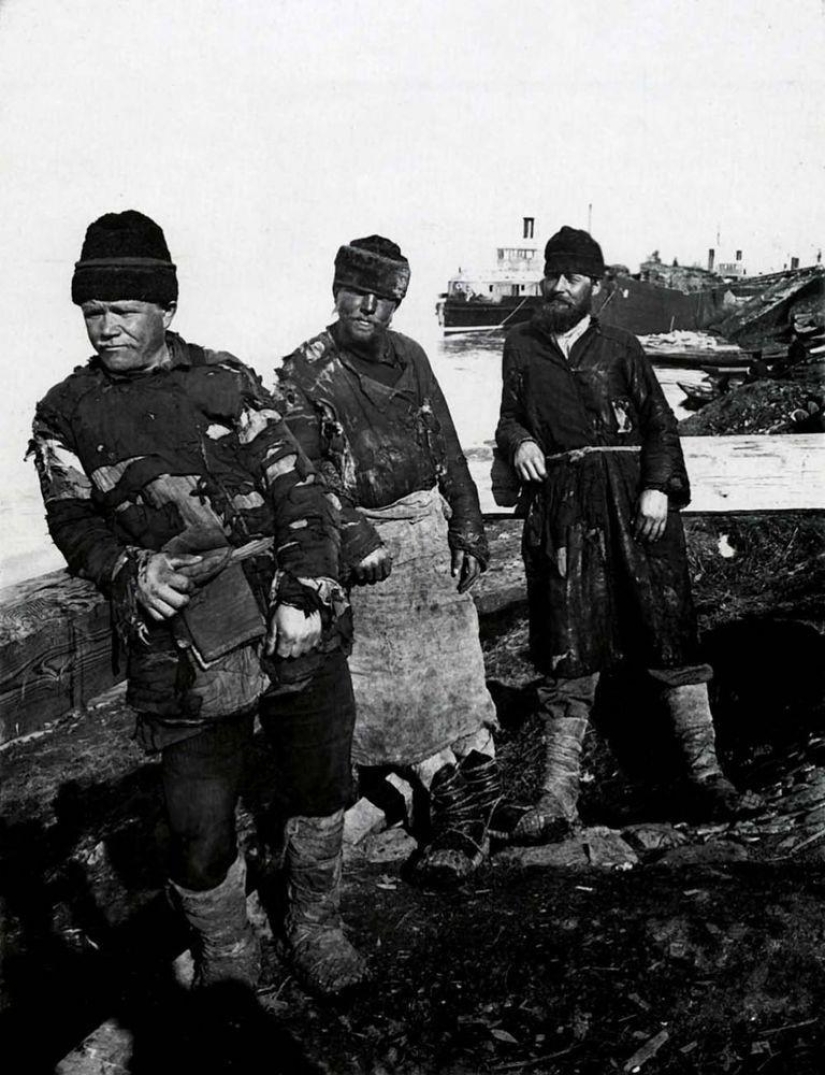
Nizhny Novgorod "tramps". The negative is 18 × 24 cm.
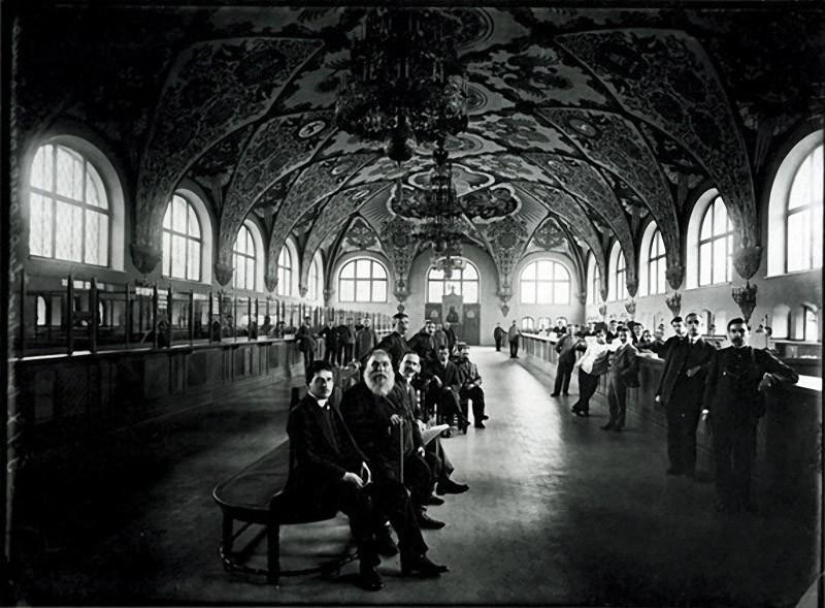
In the operating room of the State Bank. 1913. Negative 18 × 24 cm.
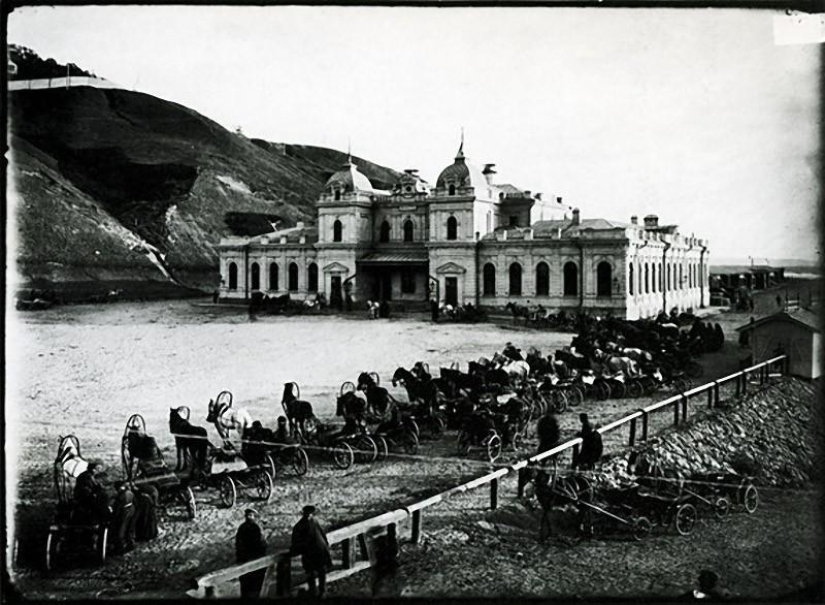
The square in front of the Romodanovsky railway station. The negative is 18 × 24 cm.
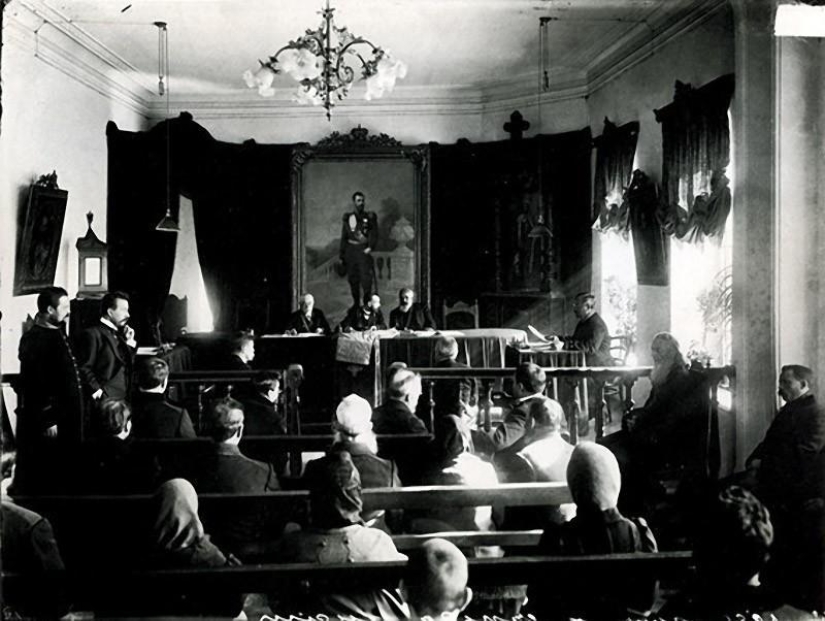
In the city courtroom. The negative is 18 × 24 cm.
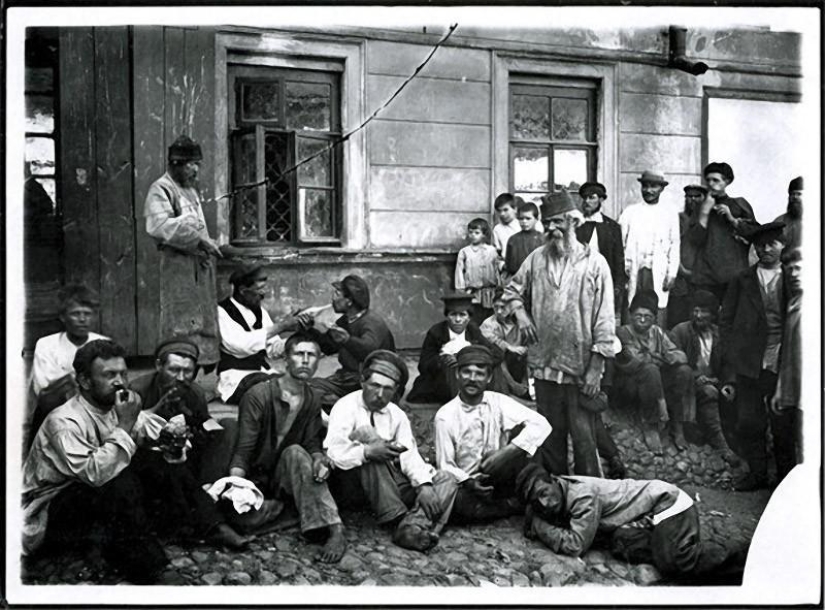
Nizhny Novgorod "tramps". The negative is 18 × 24 cm.
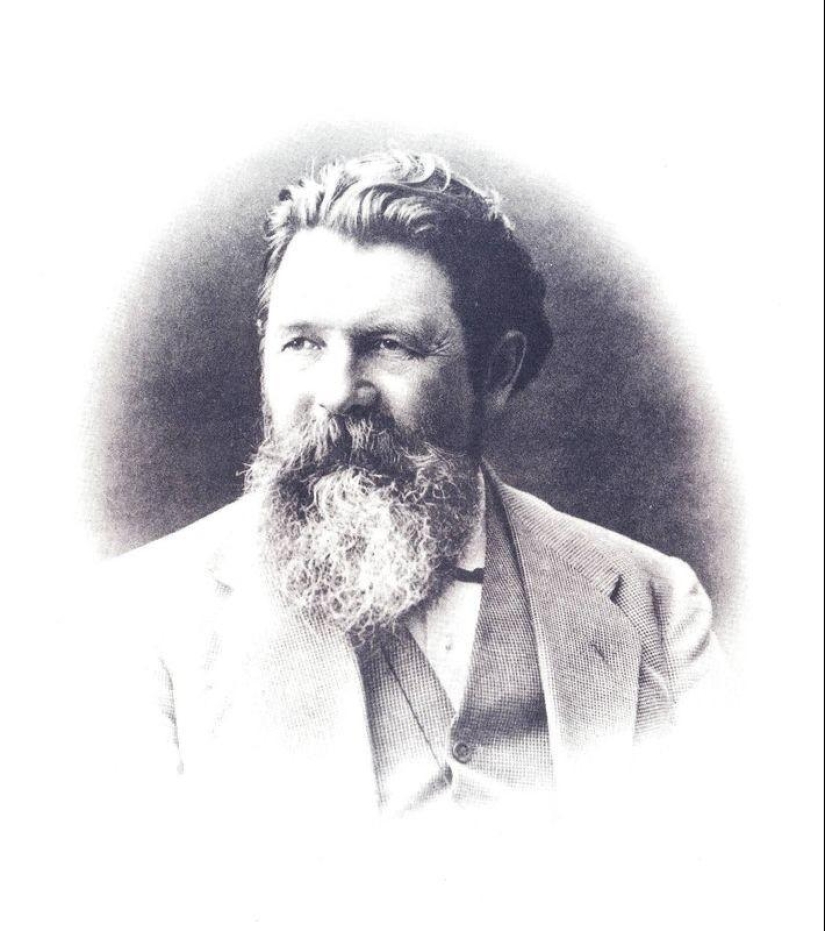
Maxim Dmitriev.
In 1858, he was born in the Tambov province. In 1873, he became an apprentice to the famous Moscow photographer M. P. Nastyukov. 1874. Works in the photo pavilion of M. P. Nastyukov at the Nizhny Novgorod Fair. In 1877, he entered the studio of D. Leibovsky as a retoucher. one thousand eight hundred seventy nine He was accepted into the studio of the outstanding photographer A. O. Karelin. one thousand eight hundred eighty one He opens his own photo studio. one thousand eight hundred eighty nine He takes part in the All-Russian Anniversary Photographic Exhibition in Moscow. In 1892, he received the small gold medal of the Moscow Exhibition, the gold medal of the Paris World Photographic Exhibition, the Grand Prix of the exhibition in Saint-Gilles, the Honorary Diploma of the exhibition in Brussels. In 1893, he published the famous album of photographs "The lean year 1891-1892 in the Nizhny Novgorod province". one thousand eight hundred ninety four He starts creating a monumental series of photographs dedicated to the Volga River. In 1896, he took part in the All-Russian Industrial and Art Exhibition in Nizhny Novgorod. 1901-1904 Removes the ruins of the Makaryevsky Zheltovodsk monastery. In 1903, he completed work on the "Volga Collection". 1913 Records in a series of large-format photographs the arrival of Emperor Nicholas II in Nizhny Novgorod. 1929 Dmitriev's photo studio becomes the responsibility of the Commission for improving the lives of children. The photographer is approved by the head of the art department and the pavilion photographer. 1937.7000 negatives are requisitioned from the Dmitriev archive. In 1948, he died in Gorky at the age of 90.
Keywords: Russian Federation | History | Archive | Russian Empire | B/w | 20th century | 19th century | Pre-revolutionary era
Post News ArticleRecent articles

It's high time to admit that this whole hipster idea has gone too far. The concept has become so popular that even restaurants have ...

There is a perception that people only use 10% of their brain potential. But the heroes of our review, apparently, found a way to ...
Related articles

In the fall of 1972, Bill Yates traveled through the countryside in the vicinity of Tampa, Florida. At that time, he was studying ...

When a person is in a life-threatening situation is awful, but even worse when it happens to a child. 11-year-old American Terry ...

Remember how broke the "unbreakable" scoop? The photo preserved in the photo album of almost every family! A selection of vintage ...

New Year's is a time to surprise and delight loved ones not only with gifts but also with a unique presentation of the holiday ...